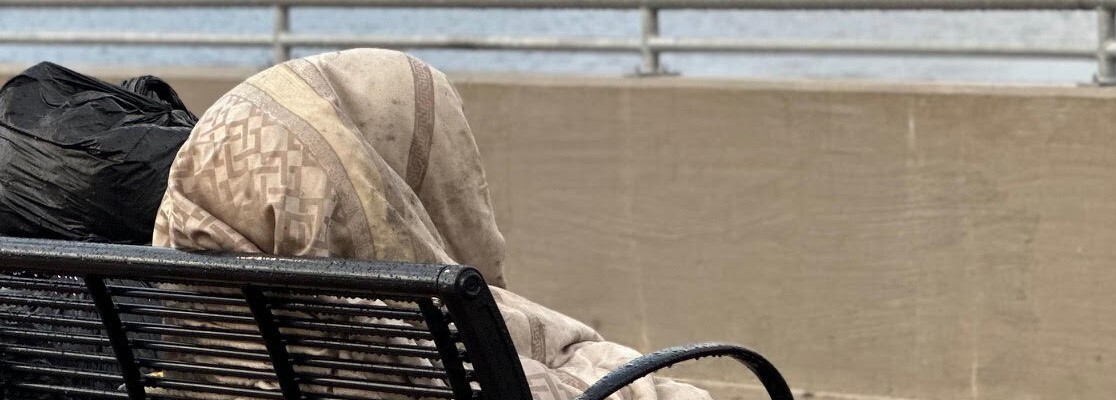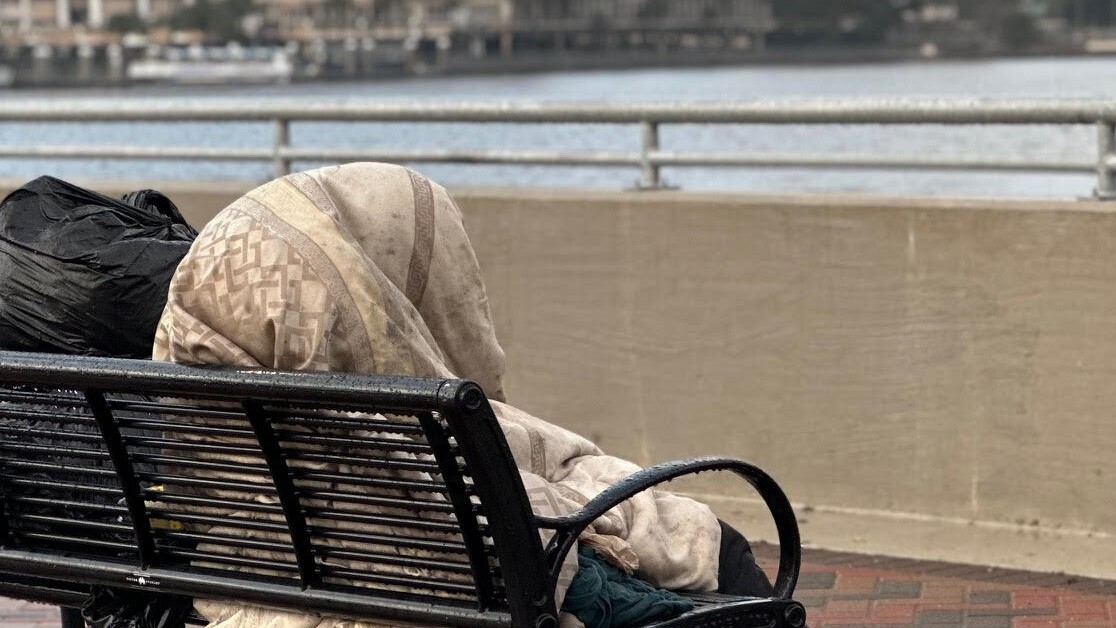A proposal that could increase prices for food and beverages at hotels, restaurants and bars — an effort to raise money to help the homeless — is already proving contentious.
A food and beverage tax in Jacksonville would require action by the state Legislature, but several local business owners are urging elected officials to drop the idea.
Restaurateur Chad Munsey co-owns The Bearded Pig Southern BBQ & Beer Garden, which has locations in Jacksonville Beach and the San Marco area. He told City Council on Tuesday that the company employs 110 people between its two locations. The industry has already endured obstacles from COVID shutdowns to supply chain issues and staffing challenges, as well as rising rents, insurance and overall operating expenses, he said.
It all results in higher menu prices.
“To the average diner in Duval County, any subtle price increase can drastically affect their decision whether to dine out or stay home,” Munsey said. “It is fair to assume many in the public will view this as a fee restaurants are just using to increase their bottom line.”
He said that while homelessness and mental health are major concerns in our community, he feels it shouldn’t fall on just his industry to foot the bill.
“I implore the council to consider investigating all avenues to raise funds for combating these issues instead of the cost falling squarely on the shoulders of one industry,” Munsey said.
Advocates say the effort could provide a solid, continuous source of funding for a homelessness and domestic violence problem that has been underfunded, or at least inconsistently funded, for decades.
Katie Ross, a representative of Changing Homelessness, a nonprofit that works to house people in Jacksonville, told elected officials that supporting the resolution “means you support starting a conversation in our community about finding new funding and new sources of support for homelessness services.”
“This resolution gives the city the chance to unlock the opportunity to establish a permanent funding source for housing the homeless and survivors of domestic violence,” Ross said.
The start of a ‘conversation’
The effort by council members Jimmy Peluso and Michael Boylan, as well as co-sponsors Rahman Johnson, Reggie Gaffney Jr. and Ju’Coby Pittman, would allow the city of Jacksonville to levy a 1% tax on food and beverages sold at restaurants and bars to create a more consistent source of funding for homelessness and domestic violence programs. A 2% tax could be placed on motels and hotels to aid in tourism and marketing efforts for the city.
Any potential tax has a long way to go, the bill’s advocates say.
First, the City Council has to pass a resolution supporting the taxing request. That resolution is expected to be heard by the council’s Rules Committee at 2 p.m. Monday at City Hall.
If it gets past that hurdle, the resolution heads to a full council vote. If a majority of City Council members have an appetite for it, the proposal would be brought to the Duval County Legislative Delegation at Jacksonville City Hall at 1 p.m. Sept. 27.
If the delegation agrees to take it up, state House and Senate legislators could take the request to Tallahassee to be heard during the 2024 legislative session, which begins Jan. 9. If the full Florida Legislature okays the request and the bill is enacted next summer, only then could the city even consider implementing the tax.
At this point, council members in support of the bill say they “just want to start a conversation” about it.
Boylan said the “J-Bill” is the result of a report from the Critical Quality of Life Issues Committee, which former City Council President Terrance Freeman created last year to address access to health care, homelessness and affordable housing.
“We came up with a number of recommendations,” Boylan told his colleagues. “We did so by looking at best practices not only in Miami and or other communities all over the country to see how best are they dealing with this particular issue. This is one of the tools in the toolbox.”
Boylan said he and others in support of the bill just want an opportunity to talk about whether a food and beverage tax could work to alleviate this specific problem that Jacksonville faces.
“It may not be the solution,” Boylan said, add that this particular opportunity is the only one already approved by the state elsewhere.
“I wanted to make people understand this is not an automatic in this situation, Boylan said. “And I would look forward to working with the restaurateurs to see if there’s a better solution than going in that direction.”
Peluso agreed there could be other options, but for right now, it is the only option Tallahassee offers that specifically addresses homelessness.
“No other assessment or tax is authorized by the state of Florida that specifically can go into a dedicated funding source for homelessness with the exception of this one,” Peluso said. “And yes, Miami-Dade is the only county that does it now. So we’re just asking, heck, Tallahassee, do you mind letting us do it as well? If they give us that right then next year, or 20 years from now, we can discuss it here.”
But others on the dais were more cautious about the proposal.
‘We’re not Miami’
“I’m a restaurant owner,” said Councilman Raul Arias, who owns Mambos Cuban Café in the Mandarin area of Jacksonville. “Everybody knows that our industry has been targeted. The men or women you see out here today, they’re fed up with this right now.”
He explained his own perspective.
“Coming to September as you can see here, we’re gonna have another minimum wage increase,” Arias said. “We don’t pay minimum wage. We’re well above that. But at the end of the day, the increases keep on happening. What’s happening too is now credit card fees will also be increasing. So when they say this is a pass-through to consumers, that’s fine. But how frequently are the consumers not gonna start coming to our restaurants or hotels?”
Arias noted that Jacksonville and Miami are different.
“We’re not Miami,” Arias said. “We don’t have the tourism dollars that Miami does.”
Councilman Johnson, responding to Arias, said Jacksonville tourism appears to be growing.
“We’re up 150% when it comes to tourists in Jacksonville, according to statistics I see with 22 million people coming to our city annually,” Johnson said, citing Visit Jacksonville data.
Councilwoman Ju’Coby Pittman, who is CEO of the Clara White Mission, said she has been working with this issue for a “very long time.”
“I think with the studies that we’ve done, we have the right people at the right place, and I think it’s time to transition up,” Pittman said. “We can no longer, you know, provide a Band-Aid approach to an issue that is real important to this community. … When you come into Downtown Jacksonville, as my colleague said, you know, we really want to clean that area up and we want the homeless that are on the street to have options. Right now. There’s not a whole lot of options, and I’m speaking from my experience.”
Others, like Councilman Matt Carlucci, said they just need more info. Meanwhile, Council President Ron Salem said the issue hadn’t even been discussed in committee yet and cautioned his colleagues to allow the process to take place.
Allan DeVault, executive director of Build Up Downtown, which supports the legislation, said he was a restaurateur too and understands the concerns of those opposing the bill.
“The many challenges (the industry faced) — that’s a very real and true statement,” said DeVault, but he added that the homelessness issue also is a challenge to the people and businesses of Jacksonville.
“I’ve seen it firsthand,” DeVault said. “Where it can affect your restaurant operations negatively. And I’ve seen it firsthand where it can be positive. I have hired a woman who was just recently homeless and gave her enough of a job and an opportunity to get into an apartment again, and that is extremely fulfilling.”
But he said his experience in Avondale, San Marco, Five Points and Downtown shows him it can most often be a challenge from an operational standpoint.
“It’s one it’s the biggest hindrances to economic development Downtown,” DeVault said. “No. 1 is always homelessness and or panhandling (and is) most often one of the biggest challenges in recruiting businesses to operate in Downtown, aside from the human aspect of wanting to help people have a place to bed at night that has a door and a lock.”
He acknowledged that maybe the community doesn’t like all the details of the bill and that perhaps there could be a sunsetting option. But ultimately, he feels the legislation could aid the restaurant, bar and hotel industries, as well as the people of Jacksonville.
“While Jacksonville has been successful, slowly successful, in our (homeless) counts and other things, there’s still a lot of people out there that need help,” DeVault said. “We don’t want to regress, we want to keep the momentum going forward.”







